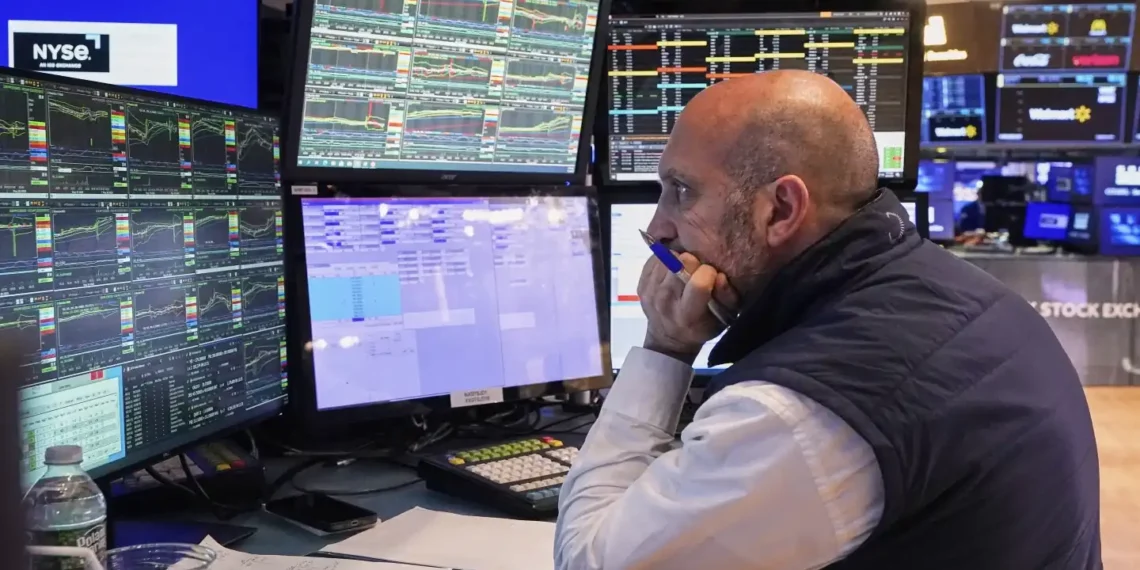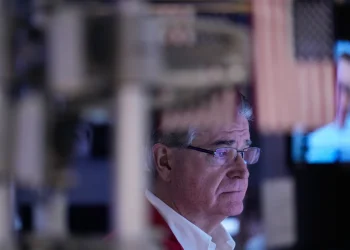Wall Street Cools Off After Rally, S&P 500 Inches Toward First Loss in a Week
NEW YORK – After a strong run-up, U.S. stocks took a breather Tuesday as Wall Street’s momentum slowed and the S&P 500 flirted with its first daily loss in a week.
The S&P 500 slipped 0.4% in morning trading but remained within 3.3% of its all-time high. Meanwhile, the Dow Jones Industrial Average dipped 104 points (0.2%), and the Nasdaq fell 0.5% as of 10:30 a.m. ET.
Debt Fears Shake Credit Confidence
Investor caution followed Moody’s Ratings downgrade of the U.S. government’s credit outlook. While the U.S. dollar held steady against other major currencies, the warning over America’s growing debt added a layer of uncertainty to the market’s outlook.
Travel Stocks Slide on Consumer Spending Concerns
Travel-related companies led the market’s laggards as worries persisted over whether American consumers can keep up their spending on leisure.
- Airbnb dropped 2.7%
- Norwegian Cruise Line fell 2.8%
- Carnival Corporation declined 2.3%
Winners on Wall Street
In contrast, D-Wave Quantum surged nearly 28% after unveiling its latest quantum computing system, claiming capabilities beyond traditional computers.
Home Depot gained 0.6% after beating revenue expectations, even though profits came in just below forecasts. Importantly, the company reaffirmed its full-year guidance for profit and sales growth — a reassuring sign as other companies dial back expectations.
Tariffs, Trade Tensions, and Economic Uncertainty
Unlike Home Depot, several U.S. companies are expressing concern over economic unpredictability and rising tariffs, many of which stem from trade policies under former President Donald Trump.
While some tariffs have been delayed or softened, uncertainty remains over whether more trade deals will bring lasting relief. If tariffs persist, consumer demand and corporate forecasts may continue to feel the pressure.
Retailers like Target and Lowe’s are set to report earnings on Wednesday, offering more insight into the state of consumer confidence.
Bond Market Movements
The 10-year Treasury yield rose slightly to 4.49%, up from 4.46% the previous day, while the 2-year yield held steady at 3.97%. Investors remain cautious over what actions the Federal Reserve might take next, especially if the economy stumbles into a recession.
Limited Room for Stimulus?
Analysts warn that if a recession hits, the U.S. government may have less room to inject fiscal support than in previous downturns due to soaring national debt. That could leave the Federal Reserve to shoulder more responsibility for stimulating the economy by lowering interest rates.
“The next recession could be deeper and longer,” said James Egelhof, chief U.S. economist at BNP Paribas, “especially if fiscal support is limited.”
Rate Cuts Gain Global Momentum
While the Fed holds its ground, central banks elsewhere are already making moves:
- China’s central bank cut its key lending rate for the first time in seven months to spur growth amid trade tensions.
- The Reserve Bank of Australia also reduced its rate to 3.85%, marking its second cut this year as inflation cools.
Markets Respond Globally
Following these moves, Asian markets rallied:
- Hong Kong’s Hang Seng Index surged 1.5%
- China’s CATL — the world’s largest EV battery maker — soared 16.4% in its Hong Kong debut after a record-setting $4.6 billion IPO
CATL’s mainland-listed shares also climbed 1.2%, rebounding after an early dip.
This article was rewritten by JournosNews.com based on verified reporting from trusted sources. The content has been independently reviewed, fact-checked, and edited for accuracy, neutrality, tone, and global readability in accordance with Google News and AdSense standards.
All opinions, quotes, or statements from contributors, experts, or sourced organizations do not necessarily reflect the views of JournosNews.com. JournosNews.com maintains full editorial independence from any external funders, sponsors, or organizations.
Stay informed with JournosNews.com — your trusted source for verified global reporting and in-depth analysis. Follow us on Google News, BlueSky, and X for real-time updates.














